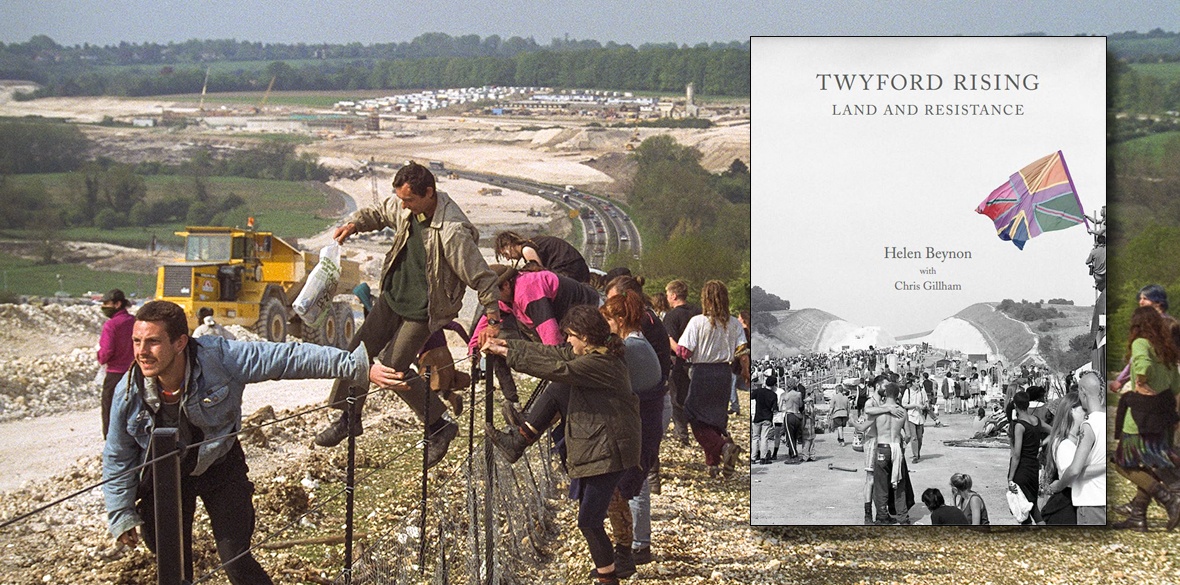This is the last article you can read this month
You can read more article this month
You can read more articles this month
Sorry your limit is up for this month
Reset on:
Please help support the Morning Star by subscribing here
IN 1989, the Thatcher government announced the “biggest road-building programme since the Romans” and one of the new schemes was the M3 extension past Winchester across Twyford Down.
With local groups having fought the planned road for decades with little success, in the early 1990s there was a shift to direct action.
Concerned about the proposed road’s impact on the land, the so-called Dongas Tribe, named after the ancient trackways in the area, set up camp on the Down.
Skilfully using original interviews, letters, memoirs, photos and poems, the authors of this book, Helen Beynon with Chris Gillham, paint a vivid picture of outdoor living, with many people recalling a deeply spiritual connection to the land.
The Dongas were soon joined by members of radical environment network Earth First!, while local residents, such as ex-Tory Councillor David Croker, continued to lobby against the road through more conventional methods, although some also participated in actions too.
There were tensions between the different groups but from summer 1992 onwards they were able to carry out regular non-violent direct action, often forcing a stop to work on the site.
In 1993 the Department of Transport claimed the protests were adding £20,000 a day to the costs of the road.
The crunch came on December 9, 1992 — it became known as “Yellow Wednesday” — when the camp was violently evicted by a small army of private security guards.
The authors painfully highlight just how traumatic the clearance was for those who experienced it. Activist Becca records that “female protesters were sexually assaulted and had their clothes ripped off.”
With the camp forced off the Down, people continued organising, with large rallies and mass trespasses taking place at the work site in 1993 and 1994, including one in which Kinder Scout trespasser Benny Rothman spoke.
The road was eventually built but not before the resistance at Twyford Down had lit the touch paper for the wider anti-roads movement.
There were protests against the M11 Link Road in east London, Fairmile in Devon, Jesmond Dene in Newcastle and, most famously, the Newbury Bypass.
Like Twyford, these hard-fought battles ended in defeat for the protesters, though arguably they won the war.
“When we began campaigning there were 600 proposed schemes in the government’s roads programme,” John Stewart, then chair of the anti-roads group Alarm UK, noted in 1998.
“Now there are 150 and we expect that number to be cut further … we have done our job.”
More broadly, Twyford “begat a hundred campaigns,” activist Shane Collins notes, including Reclaim The Streets and the anti-GM movement of the late ’90s.
Key figures also assisted Plane Stupid with their campaign against airport expansion and there is a clear link between the anti-roads movement and the climate camps of the 2000s and Extinction Rebellion.
Hugely inspiring, Twyford Rising is an engrossing account of one of the most important protests in recent British history.
As the authors conclude: “Twyford richly deserves to be part of the legends of these Islands, for it is a lost land now, which once was filled with beauty and hope.”
Published by Sarsen Press, £12.99 and available from twyfordrising.org.











